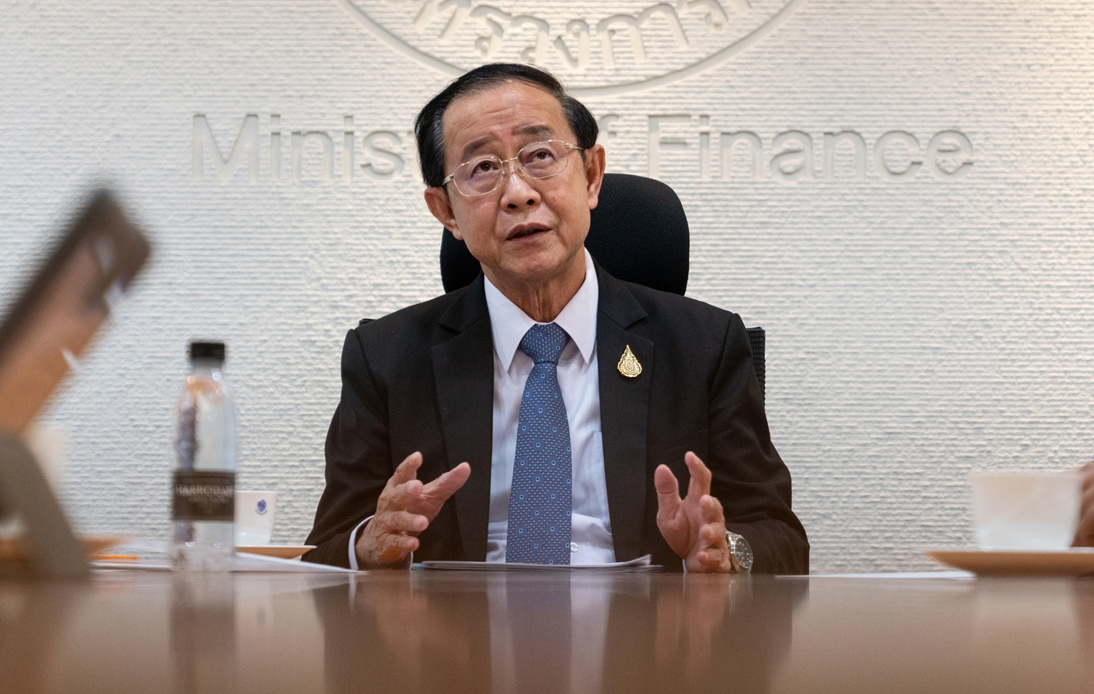
Regulators and local authorities have stepped up efforts to combat online scams and other types of financial fraud.
The move comes as Thailand sees an increase in scams of all kinds. Some measures include plugging legal loopholes and using advanced technology.
Finance Minister Arkhom Termpittayapaisith has instructed the Securities and Exchange Commission (SEC) and the Bank of Thailand to examine any legal loopholes that may favor another foreign exchange Ponzi scheme.
According to Mr. Arkhom, the case involving the Forex-3D currency exchange group that swindled 2 billion baht from thousands of victims illuminates the legal loopholes that authorities need to review.
Neither the SEC nor the central bank has ignored the Forex-3D case. They are examining the legal aspects and alerting the public to the dangers, Mr. Arkhom added.
However, according to Thai law, the case is not under the SEC’s supervision.
Last week, the SEC issued a statement explaining that it had no authority to supervise the foreign exchange sector since it only oversees the stock exchange, corporate bonds, and digital currency tokens trading.
The SEC can also monitor related companies that engage in unfair practices within the scope of the powers and duties provided by some laws. These include the Derivatives Act, the Securities and Exchange Act, the Royal Decree on the Business of Digital Assets, the Trust Act for Capital Market Transactions, and the Provident Fund Act.
Under the foreign exchange law, foreign exchange transactions must be carried out with entities approved by the Finance Ministry, the SEC added.
The regulator explained that no licenses had been issued to any individual or legal entities other than banks or financial companies to trade foreign exchange.
The Bank of Thailand has also agreed that individuals should only conduct foreign exchange trading transactions through parties approved by the Finance Ministry.
The ministry has not licensed any individual to trade foreign exchange for investment, speculation, or profit through websites or online platforms, the bank reiterated.
According to the DSI, victims can file complaints against foreign exchange scams based on the laws on obtaining loans through public fraud, public deception, and computer crimes.
The central bank has also asked all banks to closely monitor young customers’ financial transactions, as they are more susceptible to fraudsters.
Financial institutions that find suspicious transactions in such accounts must take prompt action.
In the meantime, the Bank of Thailand is working closely with relevant authorities to address financial fraud offenses.
The Royal Thai Police said the number of suspicious bank accounts in this category that banks had asked the Anti-Money Laundering Office to investigate had risen from 6,211 in May to 14,369 in August.
However, the increase is believed to be due to efforts by authorities and financial institutions to combat online fraud.
The Digital Economy and Society Ministry (DES) met with relevant state authorities and regulators to seek ways to prevent cybercrime and forex scams.
According to DES Minister Chaiwut Thanakamanusorn, officials will use social listening tools to collect the websites or social media platforms that solicit people to invest in forex trading.
The DES Ministry Permanent Secretary Ajarin Pattanapanchai also spoke about scams, saying that existing Thai laws could not keep pace with the dynamic digital economy, favoring fraudsters.




















